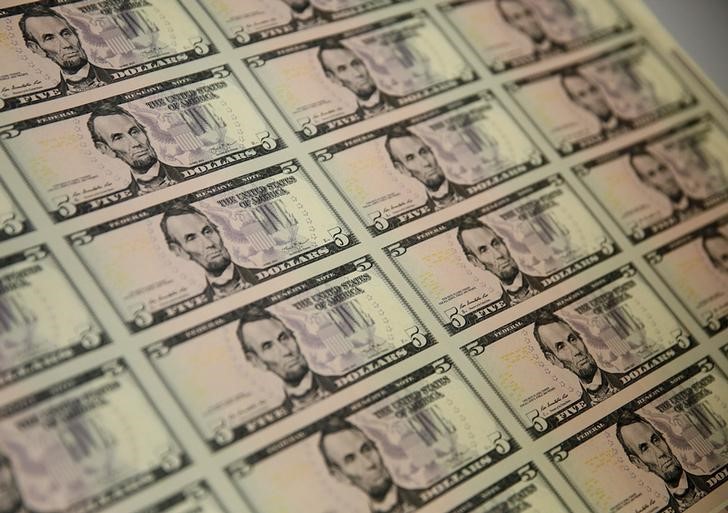By Peter Nurse
Investing.com - The U.S. dollar edged lower in early European trade Wednesday, retreating after a relatively dovish speech from Fed chair Jerome Powell raised hopes the central bank may soon ease monetary policy.
At 03:10 ET (08:10 GMT), the Dollar Index, which tracks the greenback against a basket of six other currencies, traded 0.3% lower at 103.005, after also slipping 0.3% in the previous session.
The foreign exchange market had expected Powell to push back against easing rate expectations, particularly after the surprising strength of Friday's U.S. jobs report.
Instead, while Powell acknowledged that interest rates might need to move higher than expected if economic conditions remained strong, he also reiterated that he felt a process of disinflation was underway.
That said, dollar losses are limited and the index remains not far off Tuesday's one-month high after the nonfarm payrolls had surged by 517,000 jobs on Friday, lifting expectations that the Fed would need to keep raising interest rates.
"The overall environment is doing little to lure markets back into risk assets and away from the safe-haven dollar," said analysts at ING, in a note. "US-China tensions are a source of concerns and likely weighing on global sentiment, and the Eurozone cannot count on a supportive data flow to keep the growth re-rating process going."
Elsewhere, EUR/USD traded 0.3% higher at 1.0751, bouncing after falling to 1.0669 in the previous session, its lowest since Jan. 9, GBP/USD rose 0.4% to 1.2088, rebounding from Tuesday's one-month low of 1.1961, while the risk-sensitive AUD/USD rose 0.3% to 0.6979.
USD/JPY fell 0.1% to 130.98, after falling 1.2% in the previous session. The focus remains on who will be the next Bank of Japan Governor.
Japanese Prime Minister Fumio Kishida said on Wednesday that the new BOJ governor must have strong communication skills and the ability to closely coordinate with global central banks.
USD/INR fell 0.3% to 82.612 after the Reserve Bank of India hiked interest rates by 25 basis points as widely expected, but also surprised markets by leaving the door open to more tightening, saying core inflation remained high.
